GNS ONLINE NEWS PORTAL
SHAFQAT SHEIKH
CHENAB VALLEY JULY 07:-The recent rejoining of Ghulam Mohammad Saroori to the Congress party has been underscored by a notable event attended by the AICC General Secretary, a move that reflects a strategic initiative to rejuvenate the Congress presence across Jammu and Kashmir, with particular emphasis on the Chenab region.
Ghulam Mohammad Saroori, a well-regarded political figure and former Cabinet Minister, had taken a three-year hiatus from the Congress party. His departure was initiated by the resignation of his close confidant, former Cabinet Minister Ghulam Nabi Azad, which led to the formation of a new political entity, the Democratic Progressive Azad Party (DPAP). In this new capacity, Saroori was appointed Vice Chairman, with the responsibility of navigating the party through the complex political landscape of Jammu and Kashmir.
Despite the initial optimism surrounding Azad’s leadership of the DPAP, the party faced significant challenges during the 2024 parliamentary elections. Saroori was nominated as the candidate for the Udhampur Lok Sabha seat, but ultimately, the DPAP fell short of expectations. Following these elections, the Election Commission of Jammu and Kashmir announced the schedule for Assembly elections in Jammu and Kashmir, a development that followed the region’s bifurcation into two Union Territories: Jammu & Kashmir, which secured its own Assembly, and Ladakh.

As Ghulam Mohammad Saroori distanced himself from the DPAP’s leadership after the parliamentary election results, he faced critical decisions ahead of the Assembly elections 2024. He ultimately chose to run as an independent candidate for the Inderwal constituency—a region where he had previously established a strong political foundation from serving three terms as a Member of the Legislative Assembly (MLA). However, the recent redistricting, which integrated the Marwah and Warwan blocks into Inderwal, presented new electoral challenges and dynamics that he had to navigate.
Throughout this tumultuous period, Saroori’s supporters, constituents, and well-wishers stood resolutely by him, bolstered by their shared loyalty and commitment to his leadership. However, a significant challenge arose from confusion surrounding election symbols. Many voters struggled to differentiate between the pressure cooker symbol assigned to him as an independent candidate and the bucket insignia that the DPAP had used during the previous parliamentary elections. Additionally, a substantial segment of the electorate remained well-acquainted with the Congress party’s hand symbol, which had long been synonymous with Saroori’s political identity. This confusion underscored the formidable challenge Saroori faced in re-establishing his connection with the electorate amid a rapidly evolving political landscape, as he sought to regain the trust and allegiance of voters in the region.
During the recent assembly elections, the Saroori constituency experienced a notable resurgence as candidates from the Bharatiya Janata Party (BJP) and the Indian National Congress engaged in an intense battle for voter support. This competitive landscape was further complicated by the entry of an Independent candidate, who chose to dissociate from the Jammu and Kashmir National Conference (JKNC). His decision stemmed from disputes regarding seat-sharing arrangements and the allocation of electoral mandates to Alliance candidates, reflecting the intricate political manoeuvring characteristic of the region.
The election results ultimately revealed a shockingly close outcome, with Saroori losing by a mere 500 votes. This narrow defeat suggested a deeply divided electorate and highlighted the significance of every ballot cast. Adding to the complexity of the situation was the unfortunate placement of the G M Saroori’s symbol on the Electronic Voting Machine (EVM). Positioned as the second last option—just before the NOTA (None of the Above) choice—this strategic misplacement may have had substantial implications for voter behaviour. Remarkably, the supporting candidate of G M Saroori and NOTA received nearly 2,000 votes, resulting in the loss of the election.
In essence, the Saroori constituency’s elections were not only a contest of traditional party loyalties but also underscored the complexities introduced by new candidates and the nuances of the voting process. This election cycle revealed the intricate interplay between candidate positioning, party politics, and voter perception, highlighting both the challenges and opportunities that characterise democratic engagement in the region.
The rejoining ceremony of G M Saroori unfolded in the picturesque city of Srinagar, marked by a sense of renewed hope and camaraderie among party members. Attendees included All India Congress Committee (AICC) General Secretary Syed Naseer Hussain, Jammu and Kashmir Pradesh Congress Committee (JKPCC) President Tariq Hameed Karra, and esteemed senior leader Ghulam Ahmad Mir, among other notable figures within the Congress fold.
In a statement reflecting the significance of the moment, AICC General Secretary Syed Naseer Hussain remarked, “The rejoining of G M Saroori along with other senior leaders has heralded a great resurgence for the Congress in Jammu and Kashmir.” He expressed optimism, adding, “This is merely the beginning. A multitude of prominent personalities are engaging with our leadership and are eager to reintegrate into Congress.
During the ceremony, Saroori, a revered senior leader, spoke passionately about his commitment to revitalising the party, stating, “I will exert every effort to fortify Congress. We extend our heartfelt gratitude to the Congress leadership for welcoming us back. It’s important to recognise that mistakes can occur among humans; we accept our past missteps and sincerely apologise to our party cadre and supporters.” He voiced unwavering confidence in the leadership of AICC President Mallikarjun Kharge, Leader of the Opposition Rahul Gandhi, AICC General Secretary Dr. Syed Naseer Hussain, JKPCC President Tariq Hameed Karra, and CLP Leader G.A. Mir, praising their exemplary leadership qualities. Saroori expressed a resolute determination to work tirelessly to further strengthen the party’s foothold in Jammu and Kashmir.
JKPCC President Karra warmly welcomed Saroori back into the fold, emphasising that this return would notably enhance the party’s strength. He reflected on the leader’s prior strong allegiance to the Congress, stating, “Saroori shared a long and impactful association with Congress before parting ways. Their dedication to the party’s cause was commendable, and while they took a different path for a time, they have now publicly recognised their missteps and issued an apology.” Karra asserted, “Saroori as influential leaders, and their return will undoubtedly bolster the Congress, not just in their respective constituencies, but throughout all of Jammu and Kashmir.”
CLP Leader G.A. Mir emphasised the profound historical significance of the Congress party’s role in addressing vital public issues, highlighting its unwavering commitment to expanding its responsibilities as it looks toward the future. In his passionate address, he articulated the urgent need to strengthen the party’s internal cohesion, stressing that unity among leaders and grassroots workers is essential for solidifying their influence and effectively preparing for the upcoming local body elections.
With an air of determination, Karra and Ghulam Ahmad Mir, a respected member of the Congress Working Committee, inspired the party’s cadre by urging them to engage in comprehensive preparations for the impending elections. Their rallying cry sent a clear and powerful message: the Congress party remains resolutely opposed to entertaining any alliances with the National Conference. This decision is grounded in the leadership’s confidence, bolstered by strong support from the general public. As a result, the Congress party is poised to present a formidable and unified front as it approaches the electoral challenges that lie ahead, ready to advocate for the needs and aspirations of the communities they serve.
(The author is a Freelance Writer, Columnist from Kishtwar, J&K and can be reached at 9419974577, 9419281321).



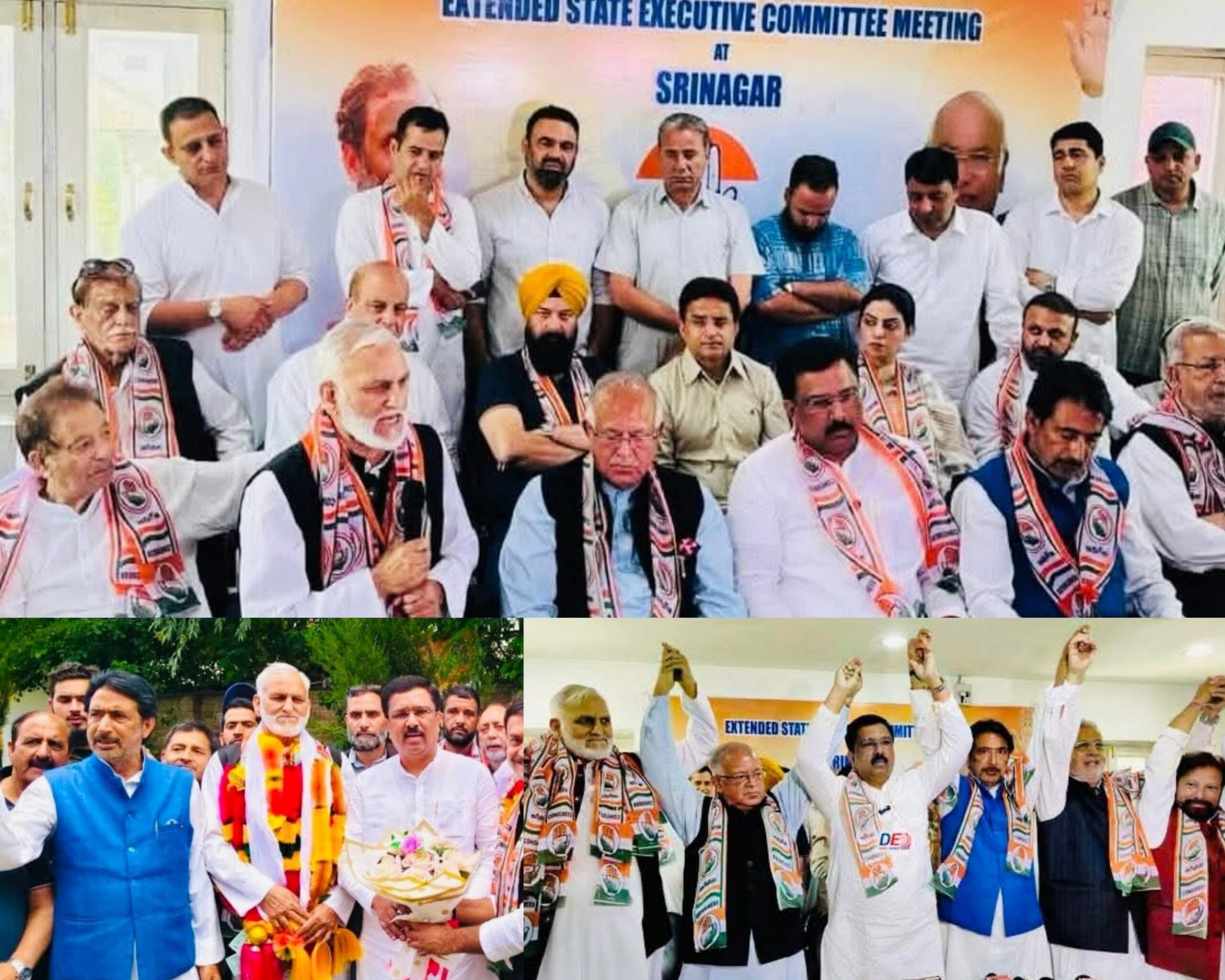





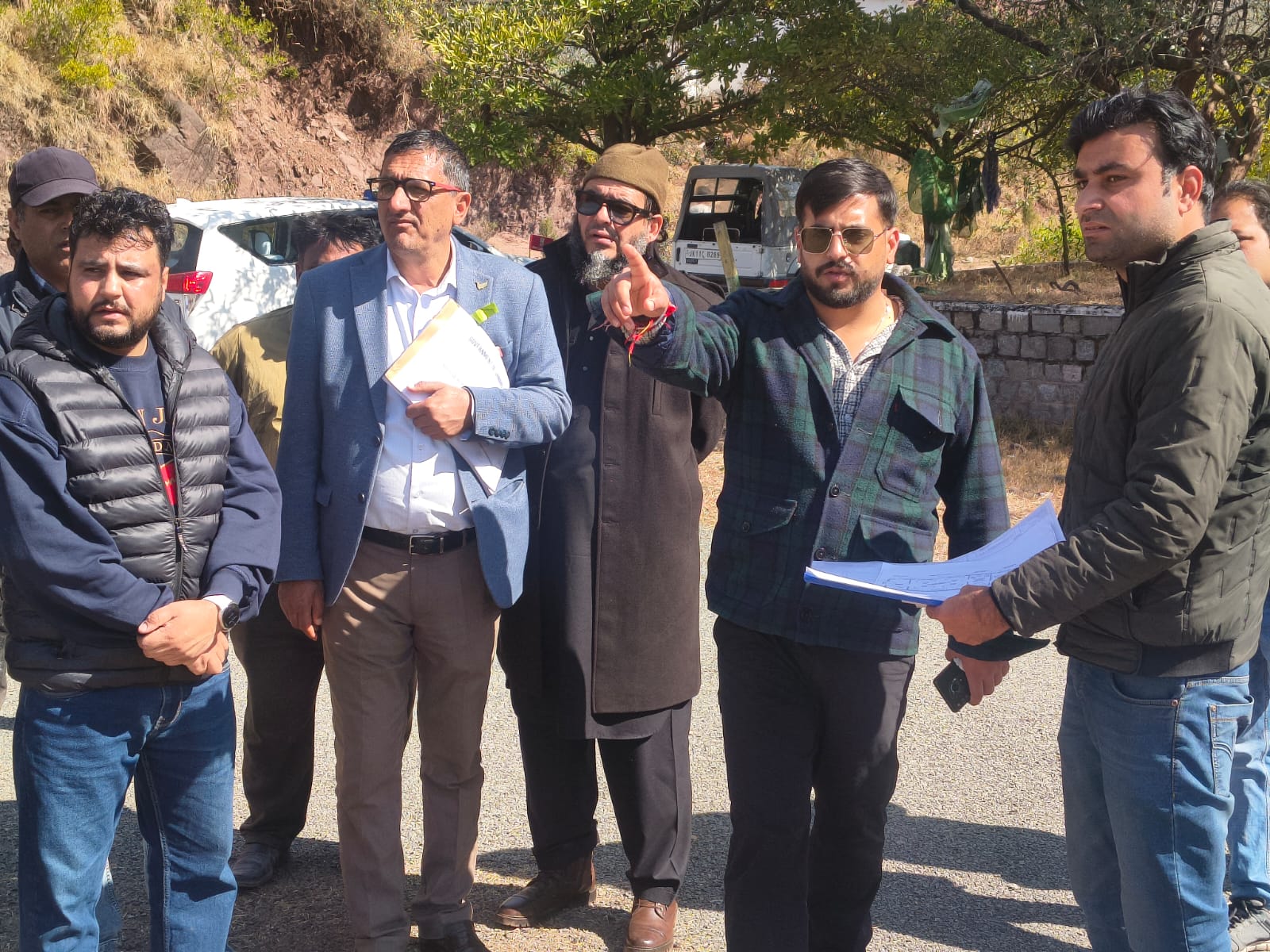
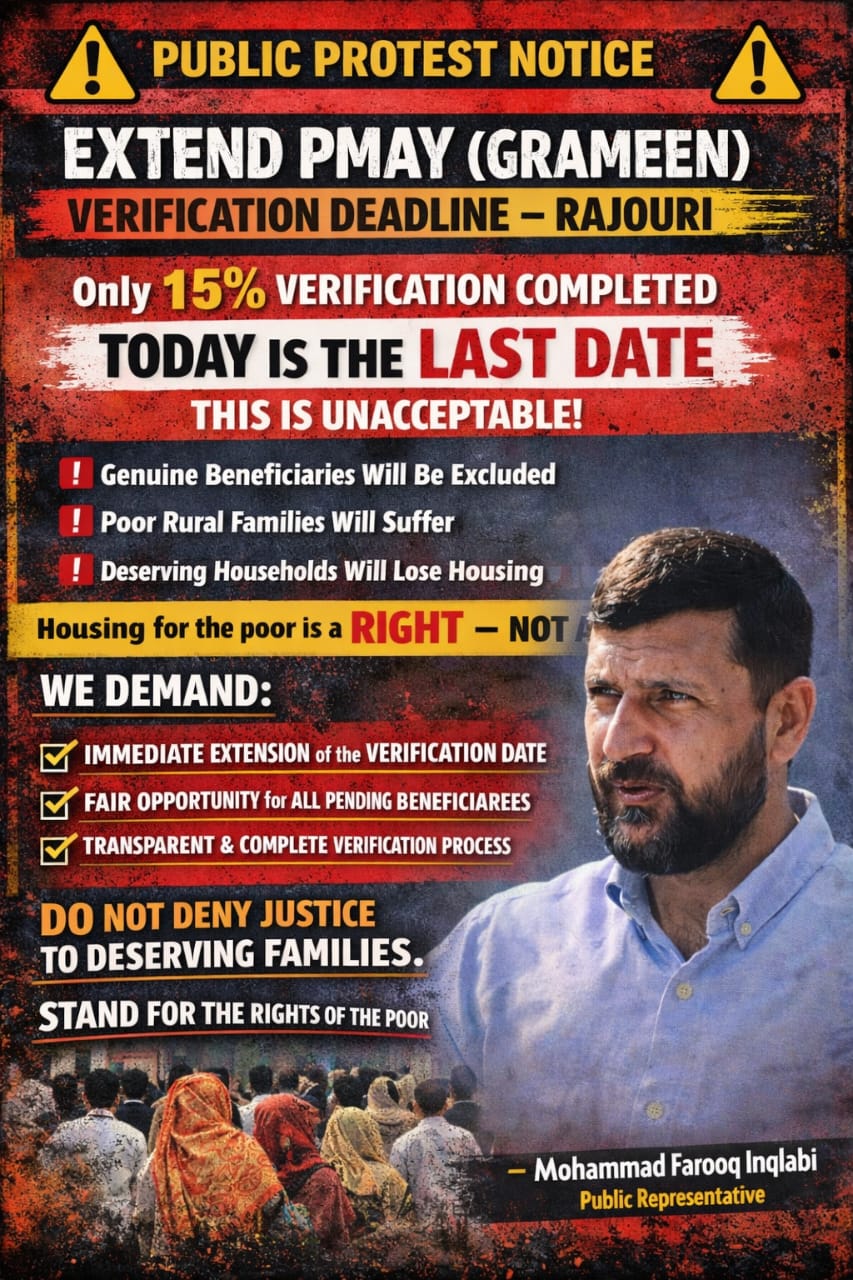
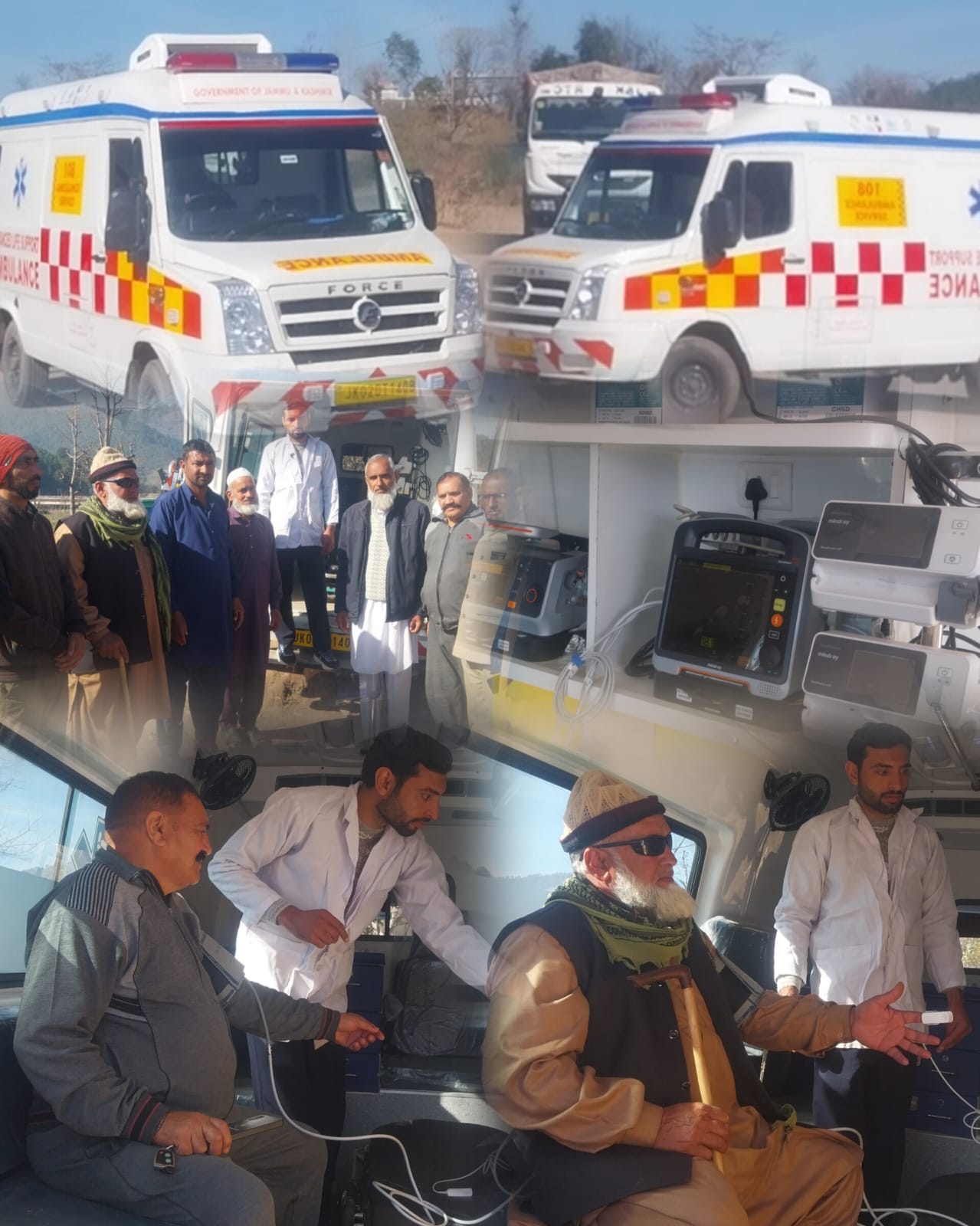
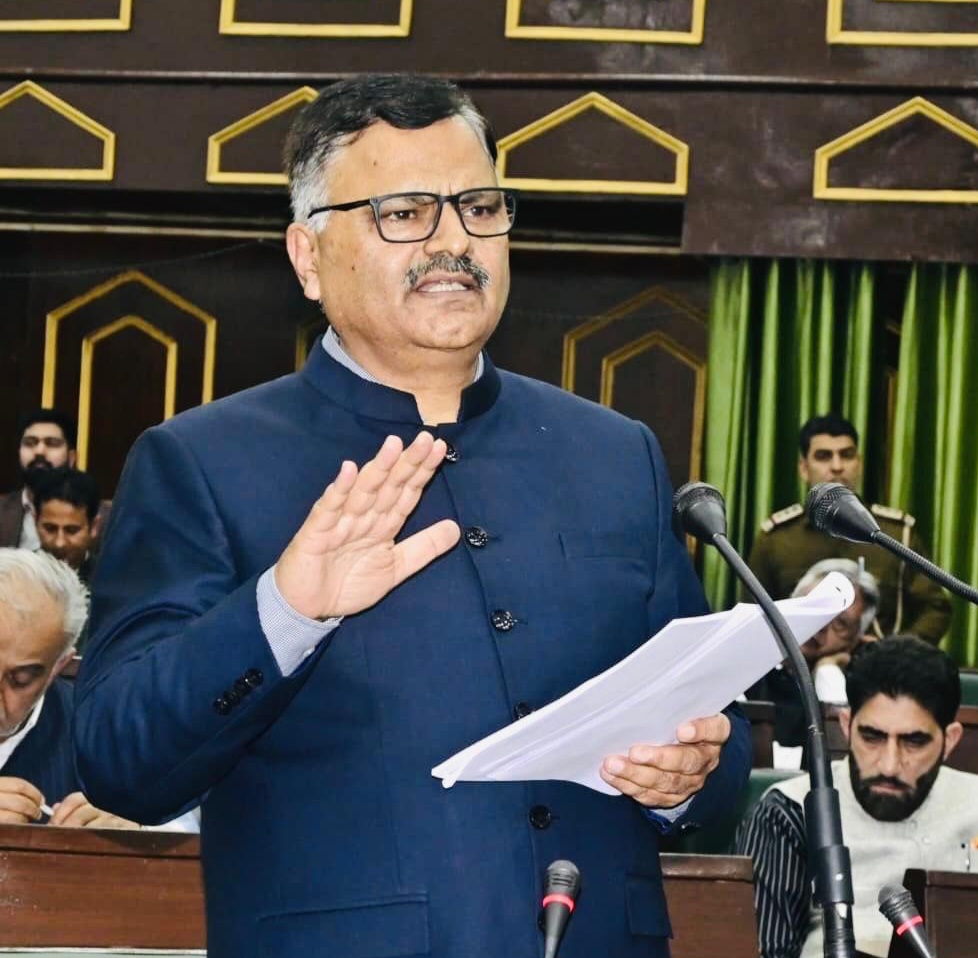
 Users Today : 79
Users Today : 79 Users Yesterday : 334
Users Yesterday : 334